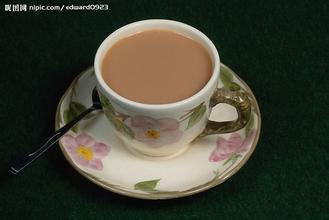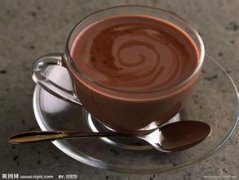A brief introduction to the flavor and taste of Blue Mountain Coffee at Valenford Manor in St. Thomas, Jamaica

Blue Mountain Coffee is the most superior coffee in the world, and the weather, geological structure and topography of Jamaica provide an ideal place. The ridge that runs through Jamaica extends to the eastern part of the island, with the Blue Mountains rising to more than 2100 meters. Cool weather, foggy, frequent precipitation, use this rich soil Rain Water to reconcile. Here, a mixed planting method is used to grow coffee trees to accompany banana trees and avocado trees on terraces. Some small estates are also planted. But even the largest landowners in the region are small-scale growers by international standards, many of whom are small landowners whose families have been working for two centuries. The coffee industry in Jamaica faces a series of problems, such as the impact of hurricanes, increased labor costs and difficult mechanization of terraces. Many small estates and farms are difficult to rationalize.
As Japan has always invested in the Jamaican coffee industry, Blue Mountain Coffee is mostly owned by the Japanese, and they have also obtained the right of preemption of Blue Mountain Coffee. In 1992, Jamaica sold 688 tons of Blue Mountain coffee to Japan, 75 tons to the United States and 59 tons to Britain. 90% of Blue Mountain coffee is bought by the Japanese. Since the rest of the world can only get 10% of Blue Mountain, regardless of the price, Blue Mountain coffee is always in short supply.
By 1969, the situation had improved because the use of Japanese loans had improved the quality of production, thus ensuring the market. By now, this kind of coffee has reached the point of being feverishly loved.
By 1981, about 1500 hectares of land in Jamaica had been reclaimed for coffee cultivation, followed by the opening of another 6000 hectares of coffee land. In fact, today's Blue Mountain area is a small area with a planting area of only 6000 hectares, and it is impossible to grow all the coffee marked "Blue Mountain" there. Another 12000 hectares are used to grow two other types of coffee: Alpine Top Coffee and Jamaican Superior Coffee.
Blue Mountain Coffee
(Jamaica Blue Mountain Coffee), of which Blue Mountain Coffee and Alpine Coffee are each divided into four grades. From top to bottom in terms of quality, NO.1, NO.2, NO.3 and PB,PB are round beans. According to CIB standards, only coffee grown above 666m above sea level is called Jamaican Blue Mountain Coffee.
Alpine coffee
Important Notice :
前街咖啡 FrontStreet Coffee has moved to new addredd:
FrontStreet Coffee Address: 315,Donghua East Road,GuangZhou
Tel:020 38364473
- Prev

A brief introduction to the planting characteristics of the manor in Ethiopia, where the coffee tree originated.
The characteristics of Ethiopian coffee: Ethiopian coffee is somewhat similar to the famous mocha coffee. Of course, high-quality Ethiopian coffee can be compared with the best coffee from all over the world, including its considerable price. Ethiopia has the highest domestic consumption of coffee in Africa. In the countryside, it is often associated with a fragrance called Adam's HealthofAdam.
- Next

A brief introduction to the rich flavor of Jamaican coffee, alpine coffee, blue mountain coffee
Jamaican Blue Mountain Coffee is harvested every year from June to November, usually by hand. After picking, it goes through the processes of washing, peeling, fermentation, dehydration, sun drying, shelling, and baking before you can get a ripe blue mountain coffee bean. In the process of raw bean processing, there are special personnel responsible for quality supervision in each step. For the very precious Blue Mountain Coffee, the Jamaican government
Related
- Detailed explanation of Jadeite planting Land in Panamanian Jadeite Manor introduction to the grading system of Jadeite competitive bidding, Red bid, Green bid and Rose Summer
- Story of Coffee planting in Brenka region of Costa Rica Stonehenge Manor anaerobic heavy honey treatment of flavor mouth
- What's on the barrel of Blue Mountain Coffee beans?
- Can American coffee also pull flowers? How to use hot American style to pull out a good-looking pattern?
- Can you make a cold extract with coffee beans? What is the right proportion for cold-extracted coffee formula?
- Indonesian PWN Gold Mandrine Coffee Origin Features Flavor How to Chong? Mandolin coffee is American.
- A brief introduction to the flavor characteristics of Brazilian yellow bourbon coffee beans
- What is the effect of different water quality on the flavor of cold-extracted coffee? What kind of water is best for brewing coffee?
- Why do you think of Rose Summer whenever you mention Panamanian coffee?
- Introduction to the characteristics of authentic blue mountain coffee bean producing areas? What is the CIB Coffee Authority in Jamaica?

